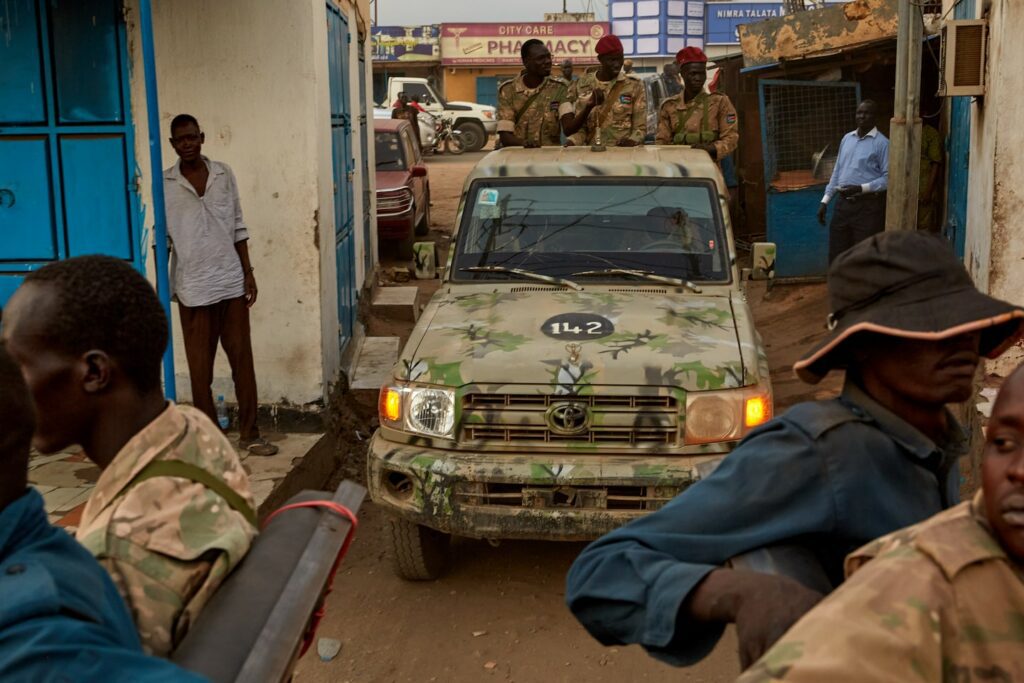NAIROBI — In mid-May, attackers with machine guns stormed a remote cluster of villages in South Sudan, killing hundreds, according to aid agencies working in the area.
In February and March, the same side that suffered so many deaths had been the perpetrator, and so the most recent bloodshed seemed like yet another massacre in a cycle of retribution between two competing cattle-herding communities that has claimed thousands of lives in South Sudan’s Jonglei region over the past decade.
The violence, however, comes on the heels of the formation of a new government in South Sudan, one intended to bring an end to a civil war that began in 2013 and has cost more than 400,000 lives. The two main belligerents, President Salva Kiir and his former deputy Riek Machar, declared “a new dawn” and that “peace has come to stay,” but many other militant leaders who were jockeying for power were left out of the deal, which was signed in late February.
“The deal could have been the start of South Sudan piecing itself together, but I think the amount of violence that still exists, and that ongoing fighting with groups that didn’t sign it shows how far we have to go,” said Alan Boswell, an expert on South Sudan at the International Crisis Group. “Even if the peace deal holds between Kiir and Machar, you still have violence that can kill hundreds and displace thousands. It exposes the myopia of the peace deal.”
As part of the peace deal, Machar’s rebel army, made up mostly of the Nuer ethnic group, is being integrated into the national army, mostly made up of Dinkas. But militias tied to smaller groups such as the Murle have been excluded from national power long before the peace deal. The Murle and a sub-tribe of the Nuer have fought over disputed land in Jonglei for decades, each accusing the other of cattle raiding, mass abductions of women and children, and attempts at ethnic cleansing.
A statement released by leaders from the Lou Nuer community last week called for peace but ended with a warning: “Should the Murle not be prepared to live in peace with their neighbors, particularly the aggrieved Lou community, then Lou youth will have no other option but to face the menace of the Murle in the most appropriate way.”
GET CAUGHT UP
Stories to keep you informed
Two ministers in Kiir’s government, including the government’s spokesman, declined to comment on the violence.
The humanitarian organization Doctors Without Borders said one of its medics was killed in the attack, and the United Nations said two other aid workers were also killed. The top U.N. official in the country said a major driver of the violence is that new governors have not been appointed despite the formation of a new government, creating regional power struggles.
“Appointments need to be made urgently. We strongly urge the government and other parties to compromise and agree on these critical positions so the states can take measures to prevent conflict, build peace, and assist with the covid-19 response,” said David Shearer, the U.N. special representative to South Sudan.
The arrival of the novel coronavirus in South Sudan has added “substantial, significant, real-time barriers” to providing medical care in instances of violence, said Steve MacKay, Doctors Without Borders’ deputy head of mission.
Machar, who was the head of South Sudan’s coronavirus task force, tested positive for the virus along with his wife, several aides and all the 14 other members of the committee, which was regrouped on Wednesday. Later that day, the new chairman also tested positive. The country has confirmed more than 800 cases but has almost no treatment capacity owing to a near-total lack of health-care infrastructure throughout most of the country.
“Medical organizations, to some degree, are being swayed toward focusing myopically on this one thing, but malaria hasn’t gone away, violence hasn’t gone away,” MacKay said. “How do we balance all that?”
South Sudan has immense humanitarian needs. Millions live in displacement camps, and millions more live in refugee camps in neighboring Sudan, Ethiopia, Uganda and Kenya. More than half its population is facing severe food shortages. A new generation of locust swarms plaguing much of East Africa has now added to the looming chance of famine, including in Jonglei and Central Equatoria, another region that has experienced a recent bout of violence.
Central Equatoria’s archbishop, Paul Yugusuk, posted a series of videos this month decrying a 10-day confrontation between the national army and a militia led by Thomas Cirillo, a former deputy chief of staff to Kiir. Yugusuk said five had been killed, at least 11 villages burned to the ground, and an entire ethnic community, the Pojulu, displaced. With the coronavirus confirmed to be spreading in other displacement camps, he said he feared for the newly homeless.
“Our people are going to be killed by this deadly virus simply because they have been displaced from their homes,” he said. “God help us.”
They were rescued from a brutal conflict in South Sudan. Now many former boy soldiers are going back.
Africa’s most vulnerable countries have few ventilators — or none at all
Today’s coverage from Post correspondents around the world
Like Washington Post World on Facebook and stay updated on foreign news
Source link : https://www.washingtonpost.com/world/africa/south-sudan-violence-peace-deal/2020/05/27/3b28491a-9f8a-11ea-be06-af5514ee0385_story.html
Author :
Publish date : 2020-05-28 03:00:00
Copyright for syndicated content belongs to the linked Source.
